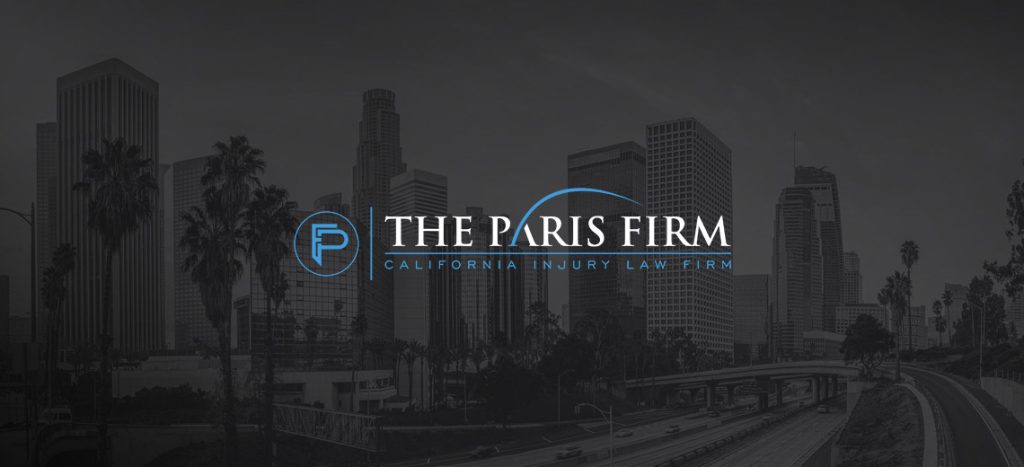Do You Have to Report a Personal Injury Settlement to the IRS?
After you win a personal injury lawsuit, you may be thinking to yourself that the entirety of your settlement is for you to spend how you choose. Unfortunately, that is not always the case. Often, multiple parties, such as your lawyer, a pre-settlement loan company, or a healthcare provider, may reserve a portion of your compensation. But that makes sense; you planned on that. It doesn’t end there, however. It’s possible that you may owe money to the Internal Revenue Service (IRS), too.
While the chances are good that your personal injury financial recovery won’t be taxed. There are exceptions, however, and it’s good to be informed. Regardless, it is wise to cover your bases and work with the IRS or risk getting fined.
Get in touch with The Paris Firm to discuss your case and determine whether or not your lawsuit earnings are susceptible to taxation. Our legal team would be happy to answer your questions and concerns in a free case review.
Do You Also Have to Report Your Settlement to California’s FTB?
Californians pay state and federal taxes based on their income, so it makes sense to wonder whether it’s necessary to pay taxes for lawsuit settlements. California’s Franchise Tax Board (FTB) considers lawsuit settlements a form of income, and some of that income may be taxed.
You must report the lawsuit settlement to the FTB, who will offer guidance about how to report income so that you can avoid fees and penalties. Non-exempt compensation will need to be reported on your next tax return.
What Settlement Proceeds Are Taxable?
When it comes to state and federal taxes, there are some differences between what is taxable. To ensure that you have the most complete and up-to-date information, please contact our law office to discuss your unique personal tax situation.
You may need to pay taxes on the following personal injury settlement funds:
- Lost wages: Your lost wages are considered taxable because this is lost income. In addition to needing to report this settlement to the IRS and FTB, your lost income compensation may also be subject to Medicare taxes and Social Security taxes.
- Pain and suffering: Some pain and suffering compensation is taxable, and some are not. It depends on whether your anguish was related to an injury or illness versus if it was related to a personal loss or indignity. To put it simply, physical pain and suffering is not taxable, but non-physical pain and suffering is subject to tax.
- Punitive damages: It’s rare to be rewarded with punitive damages in California, but it does happen. If you received punitive damages after the court deemed the at-fault party’s actions to be malicious, cruel, or acts of extreme negligence, you must report those damages to the IRS. Punitive damages and any associated interest payments are fully taxable.
Is Certain Lawsuit Compensation Exempt from Taxation?
While many parts of your settlement may be subject to taxation, other portions of your settlement are free from taxes. Again, there are certain differences between state and federal taxes, so to be sure you’re working with the most comprehensive set of facts, please contact The Paris Firm to discuss your case in more detail.
The following portions of your settlement may be exempt from taxation:
- Emotional distress from an injury: If your mental anguish is the result of your injuries or illness from the accident, then the emotional distress compensation is not taxable.
- Illness: If you were the victim of exposure to toxic chemicals or another substance that made you sick, the compensatory funds for that physical illness would be exempt from taxation.
- Medical expenses: Fortunately, compensation for past medical bills and future medical treatment costs are not taxable. This type of financial recovery is not income but rather a reimbursement for your expenses.
- Property damage: The IRS and FTB consider payments for property damages to be reimbursements, not income. Since they’re not viewed as income, they cannot be taxed.
Are Wrongful Death Damages Tax-Free?
If you lost a loved one in an accident caused by someone else’s negligence or intentional wrongdoing, you may have filed a wrongful death claim to recover damages. Wrongful death damages often include medical expenses, lost wages, loss of companionship, funeral costs, pain and suffering, and emotional distress.
Generally speaking, most of these damages are tax-free, as they are not considered income but rather a means by which to make you whole again. There may be exceptions, however, and you are encouraged to speak with a lawyer experienced in wrongful death cases.
Contact Our Law Firm Today to Schedule Your Free Consultation
It seems almost unthinkable that you may need to pay the IRS or FTB some of what you’ve recovered in your lawsuit settlement. However, depending on the circumstances of your settlement, that may be the case. In order to be sure that your case is or isn’t exempt from taxation, we strongly recommend that you reach out to our law firm to discuss your legal matters in more detail.
The Paris Firm has years of experience representing injured victims and their loved ones across the state of California. We pride ourselves in providing helpful, compassionate legal representation with the aim of protecting your interests and your finances. To discuss our legal services, please schedule your free initial consultation.
We’re here to help. Contact our China Hills, California, law offices at 909-325-6185 to schedule your free case evaluation today.













